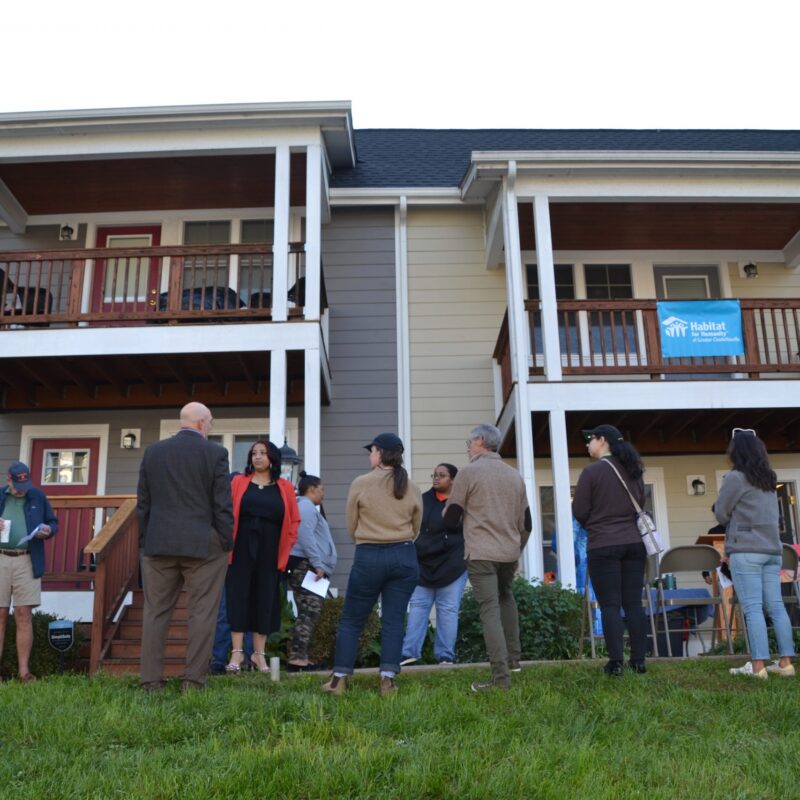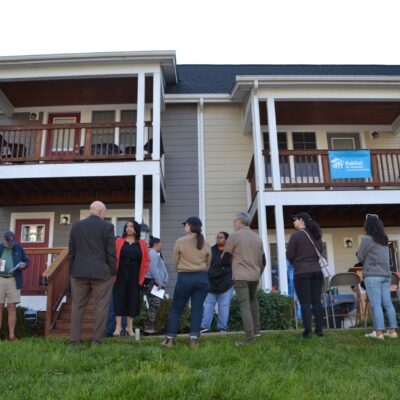How many people are on City Council’s mailing list? Council knows, of course. Soon, Rob Schilling may, too.
Schilling, a former Republican Councilor and host of “The Schilling Show” on WINA Newsradio, recently sent a Freedom of Information Act (FOIA) request to the City of Charlottesville. In his request, Schilling asked for the complete list of contact names and e-mail addresses used by the city to distribute council agendas and meeting notices, typically hidden via e-mail’s “blind carbon copy” feature, and may have them soon.
|
He’s going to sit right down and write himself a letter: Rob Schilling will soon have the e-mail addresses from City Council’s mailing list. |
“I have been troubled for a long time by the Charlottesville government claiming that it is an open and transparent government, and all of their lists coming out of Charlottesville City, Charlottesville City Schools and the Charlottesville Clerk’s office sent out to blind copy lists,” says Schilling. “And I am wondering what the secret is.”
Paige Barfield, clerk of City Council, explains that the main reason for that is privacy —to avoid risk of citizens’ e-mail accounts receiving spam and unsolicited mail. “When people sign up to receive our e-mails, to receive our agendas, we don’t say that it’s going to be public,” she tells C-VILLE. “Perhaps that’s something we are going to need to change going forward, if it’s something that is routinely provided to whoever wants to request it.”
Schilling says he previously sent requests to Barfield without success. So, last week, Schilling says he “changed it into a FOIA.” Barfield says she received an informal request via e-mail on May 5, but it took time, because she “had to go through my legal department to make sure that we were complying with the FOIA requirements.
“It requires us to notify the people who are on the distribution list that their e-mails are being made public, and gives them an opportunity to object if they don’t want their e-mail to be made public,” she said. Last week, Barfield sent a message to the distribution list to explain to recipients that e-mail addresses would be disclosed to Schilling unless she was notified by Thursday, May 20, at 4pm.
Local web developer Waldo Jaquith, also a board member for the Virginia Coalition of Open Government, says that the situation raises questions of computer security and the intersection of law and morals. “For a decade now, the use of open carbon copy lists has been rightly seen as an area of significant exposure by computer security experts,” says Jaquith via e-mail.
Regarding morality and legality, Jaquith mentions criticism received by The Roanoke Times after the paper published a list of state residents with concealed weapon permits.
“That was perfectly legal, but widely seen as completely inappropriate,” says Jaquith. “That’s because the purpose of open government laws is to expose the workings of government to individuals, not to expose individuals’ private information to other individuals simply because they interact with the government.”
Schilling maintains that he is not satisfied with the city’s policy.
“If you compare and contrast this to Albemarle County, [county spokesperson] Lee Catlin and [county schools spokesperson] Maury Brown always send out an open list,” he says. “I am very suspicious of a government that claims to be open and transparent and refuses to divulge the information.”
Catlin says that, barring the county’s “A-mail” service (provided through a third-party server), Albemarle e-mails from her office have never obscured recipient addresses. “We have always felt that information is public information,” says Catlin. “And we have not really seen any reason to not let other people see who is sharing in that information.”
C-VILLE welcomes news tips from readers. Send them to news@c-ville.com.






